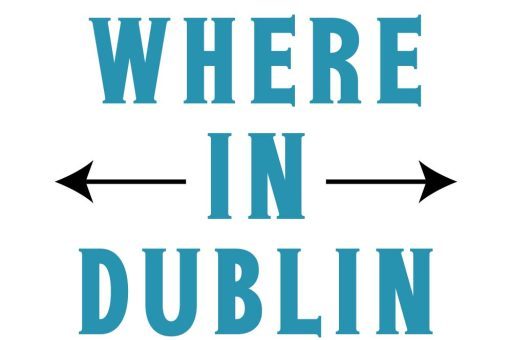When someone asks, “Is Ireland a country?” the answer might seem simple, but it’s actually more layered than expected. From its geography to its political status, Ireland has a story that is both fascinating and sometimes confusing. Let’s break it down in a way that’s easy to understand and fun to read.
Let’s Understand the Geography of Ireland Here
Ireland is an island located in the North Atlantic, to the west of Great Britain. It is the third-largest island in Europe and the twentieth-largest in the world. The island is divided into two distinct parts: Northern Ireland and the Republic of Ireland.
Northern Ireland is part of the United Kingdom.
The Republic of Ireland is an independent sovereign nation.
From my own personal experience, many travelers and even students often confuse these two areas, assuming the entire island is just “Ireland” in the political sense. Geography and politics overlap here, making it a topic worth exploring carefully.
The Island vs. The Country
It’s crucial to understand the distinction between the island of Ireland and the country called Ireland. The island refers to the physical landmass, while the country typically refers to the Republic of Ireland, which governs most of the island.
The Republic of Ireland occupies about five-sixths of the island, while Northern Ireland occupies the remaining one-sixth. This small portion of land being politically separate is a key reason why the question “Is Ireland a country?” comes up frequently.
Political Status: Why the Confusion Exists
The confusion mainly comes from political history. The island was once entirely part of the United Kingdom. However, in 1922, following a war for independence, the southern part became the Irish Free State, which later became the Republic of Ireland. Northern Ireland remained part of the United Kingdom.
So when asking “Is Ireland a country?” the correct answer depends on what you mean:
If talking about the Republic of Ireland, yes, it is a country.
If talking about the island as a whole, not entirely, because Northern Ireland is part of the UK.
International Recognition
The Republic of Ireland is recognized internationally as a sovereign nation. It has its own government, currency, and laws. It is a member of the United Nations, the European Union, and many other international organizations.
Northern Ireland, on the other hand, is governed by the UK government in London but also has its own local assembly in Belfast for regional matters. This dual governance can be tricky to understand for outsiders.
Cultural Identity and Country Status
The question of whether Ireland is a country isn’t just political—it’s also cultural. People from Northern Ireland may identify as Irish, British, or both. The Republic of Ireland, meanwhile, maintains a strong sense of national identity tied to Irish language, traditions, and history.
From my own personal experience, visiting cities like Dublin, Galway, and Cork gives a completely different vibe than visiting Belfast or Derry. Each part of the island has unique customs, accents, and cultural practices, highlighting why geography and politics don’t always align with cultural identity.
Symbols of Irish Nationhood
Symbols like the Irish flag, national anthem, and St. Patrick’s Day celebrations are associated specifically with the Republic of Ireland. These symbols reinforce its status as an independent country.
Northern Ireland also has its own symbols, such as the Ulster Banner and celebrations that reflect its union with the UK. This mix of symbols can make it confusing for someone learning about the island for the first time.
Common Misconceptions About Ireland
Ireland and Northern Ireland are the same: They are not. One is a sovereign country; the other is part of the UK.
The UK controls all of Ireland: Only Northern Ireland is under UK governance.
Everyone in Ireland speaks Gaelic: While Gaelic (Irish) is an official language of the Republic, most people also speak English.
Understanding these misconceptions helps clear up why the question “Is Ireland a country?” keeps coming up.
How the Question Impacts Travel and Education
For travelers, knowing whether Ireland is a country affects visa requirements, travel plans, and understanding local laws. For students, understanding this distinction is important in history, geography, and political science classes.
From my own personal experience, many tourists get confused at airports. Some assume that flying into Belfast means entering Ireland in the same way as flying into Dublin. The two regions have different border controls and regulations because of their political statuses.
Tips for Travelers
Check your passport requirements: Entering the Republic of Ireland is different from entering Northern Ireland for non-EU travelers.
Respect local identity: People in Northern Ireland may identify differently; a simple “Where are you from?” can help avoid assumptions.
Learn the basics of local law: Driving, currency, and taxes differ between the two regions.
Ireland in the Global Context
Globally, Ireland is known for its music, literature, and innovation. The Republic of Ireland has a strong economy and is home to many multinational companies. Northern Ireland contributes to the UK economy and shares cultural influence with its southern neighbor.
Despite the political split, both regions are often referred to collectively as “Ireland” in cultural and tourist contexts. This sometimes fuels the confusion for people unfamiliar with the political division.
Sports and National Representation
Sports are another area where distinctions matter. Rugby and football teams often represent the island as a whole, while other sports like soccer follow national borders. This adds another layer of complexity when trying to define Ireland as a single country.
Conclusion: Is Ireland a Country?
In short, yes, the Republic of Ireland is a country. It is sovereign, internationally recognized, and self-governing. However, the island of Ireland as a whole is not entirely a single country, because Northern Ireland remains part of the United Kingdom.
Understanding this distinction is important for travel, education, and even general conversations. Geography, politics, and culture all play roles in why the answer isn’t a simple “yes” or “no.”
From my own personal experience, knowing these details makes visiting Ireland far more enriching. Understanding the history and political nuances allows for a deeper appreciation of the island, its people, and its vibrant culture.
Key Takeaways
- Ireland can refer to both an island and a country.
- The Republic of Ireland is an independent nation.
- Northern Ireland is part of the United Kingdom.
- Cultural identity often overlaps political boundaries.
- Awareness of these distinctions enhances travel and learning experiences.
Ireland’s story is a fascinating mix of history, politics, and culture. Next time someone asks, “Is Ireland a country?” the answer can be shared clearly: yes, but context matters.


